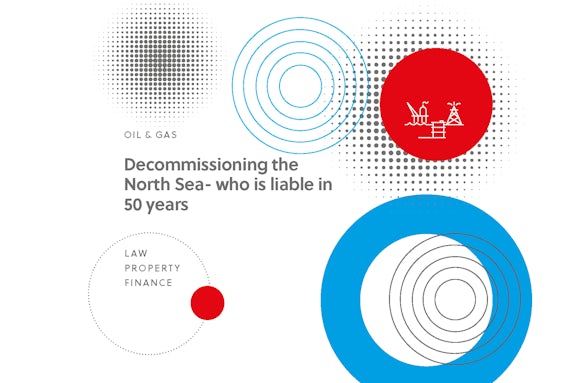Decommissioning platforms, wells, FPSOs, pipelines and other subsea infrastructure in the North Sea – who is liable in 50 years’ time?
This is a question that has been doing rounds for quite some time. The simple answer is almost everyone involved.
Petroleum Act and s.29 Notices
I intend to explore this in more depth on the next instalment of the decommissioning series. Essentially, though, under the Petroleum Act 1998, the Government can serve s.29 notices on current and past licensees (together with parent companies and some other entities – it is quite far-reaching), which obligate the notice holders to submit a decommissioning programme.
The decommissioning programme requires Government approval. Once approved, it is the obligation of the notice holders to carry out decommissioning in accordance with that programme, including ongoing monitoring obligations, which can last for decades to come.
What about companies that no longer exist?
It all seems straightforward enough until you consider some companies will voluntarily wind up because their sole reason for existence has ceased along with their production or may have fallen victim to liquidation.
What will be left to do?
In terms of ongoing monitoring, that is relatively straightforward to define. There will be a set number of surveys required at specified intervals. What happens if those surveys discover an issue such as leaking storage cells, poor trawlable conditions, or bubbling wells?
Does it simply fall back to those companies that are still in existence on the s.29 list?
Will the companies be allowed to wind up with s.29 / decommissioning programme obligations hanging over them?
The main issue is the liability in perpetuity problem. If a company’s sole reason for existence has ceased, how realistic is it for that company to continue to exist so that it can oversee a survey that needs to be conducted once every 5 years?
If those companies are allowed to wind up, we may be looking at a situation where it is only those big companies that were around at the beginning, and have transitioned successfully away from oil and gas, being left with all of the ongoing liability.
My colleague, Steven Jansch will explore this in more detail and draw some interesting parallels in his upcoming blog on winding down companies with outstanding government notices. Look out for that blog coming soon.
What are the alternative options?
The alternatives seem to be:
- an insurance backed solution – industry wide or company specific insurance policies put in place to claim against for any future liabilities.
- regulated Government entity / body taking on the responsibility – presumably this would need to be backed by some sort of fund or perhaps combined with the insurance policy, ultimately paid for by the outgoing s.29 notice holders.
- a self-insured solution – effectively an industry wide decommissioning security fund. All the outgoing s.29 notice holders pay into one big pot which acts as an insurance fund against any future liabilities.
The main issue with all of these is the inability to define how big the back-up needs to be. Estimating decommissioning costs years in advance has proven difficult for the industry and that’s with the infrastructure staring us in the face. Trying to ascertain how big the pot needs to be when there might be zero issues requiring fixed or multiple issues is nearly impossible.
One thing is certain though – the discussions around this will continue for years to come and it will be fascinating to see it unfold.
If you would like further information on the topic discussed in this blog, please contact Calum Crighton by email: ccrighton@gilsongray.co.uk or by phone: 0131 285 7841 / 07825 884 961. You can also view Calum’s profile by clicking here.
The information and opinions contained in this blog are for information only. They are not intended to constitute advice and should not be relied upon or considered as a replacement for advice. Before acting on any of the information contained in this blog, please seek specific advice from Gilson Gray.








